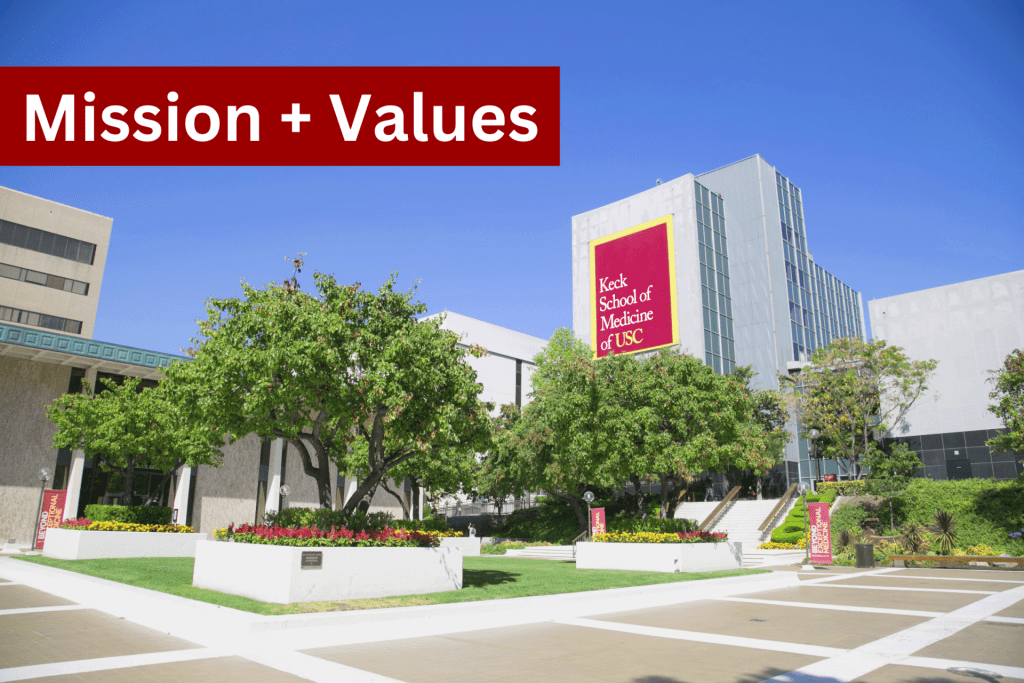ABOUT HEAL

Message from Dr. Pamela Schaff
Director, Humanities, Ethics, Arts and Law (HEAL) Program

The HEAL (Humanities, Ethics, Art, and Law) Program at the Keck School of Medicine of USC provides students with the tools they need to develop their professional identities as they accept the complexities of a life committed to health care. Medical students are confronted with an ever-expanding body of scientific knowledge and must embrace their role as lifelong learners—as physician-citizen-scholars—who are open to diverse perspectives, willing to grapple with uncertainty, to seek the expertise of colleagues and their patients, and to find joy in their chosen profession.
HEAL Core Curriculum and Co-Curricular Elements
The HEAL program is an integrating feature across all four years of the KSOM curriculum and prepares students to care for patients as complete human beings, not as injuries or illnesses: HEAL offers over 200 hours of curricular content, and builds skills in perspective-taking, critical reflection, and ethical decision-making. It progresses from the personal to the professional, beginning with students’ examination of their own values and person ethics, and moves toward the critical examination of the physician’s role in society.
HEAL content and skills are delivered in required pre-clinical and clinical coursework, as well as in a rich array of co-curricular elements including creative writing workshops, art and medicine events, free piano lessons, concerts, and lectures by scholars from the humanities and social sciences, to inform their collective understanding of individual, community and societal health. The HEAL Program trains compassionate future physicians while providing them with opportunities that nurture and support their overall wellbeing.
HEAL Program Goals
- Stimulate imagination, curiosity, skills of close observation, and careful interpretation through engagement with the arts and humanities
- Cultivate narrative humility in engagement with the dynamic stories of patients, peers, faculty, and staff
- Promote critical reflection in service of healthy professional identity formation
- Provide longitudinal, integrated instruction in health care ethics and ethical decision-making
- Foster the capacity to analyze the humanistic, legal, social, and ethical dimensions of health care
- Develop the knowledge, attitudes, and skills needed to participate in a systems-based approach to medical practice and the promotion of patient safety and health equity
Partnerships
ArtRX (USC Suzanne Dworak-Peck School of Social Work)
Gehr Family Center for Health Systems Science
USC Dana and David Dornsife College of Letters, Arts, and Sciences
USC MESH (Medicine, Engineering, Science, and Humanities) Academy